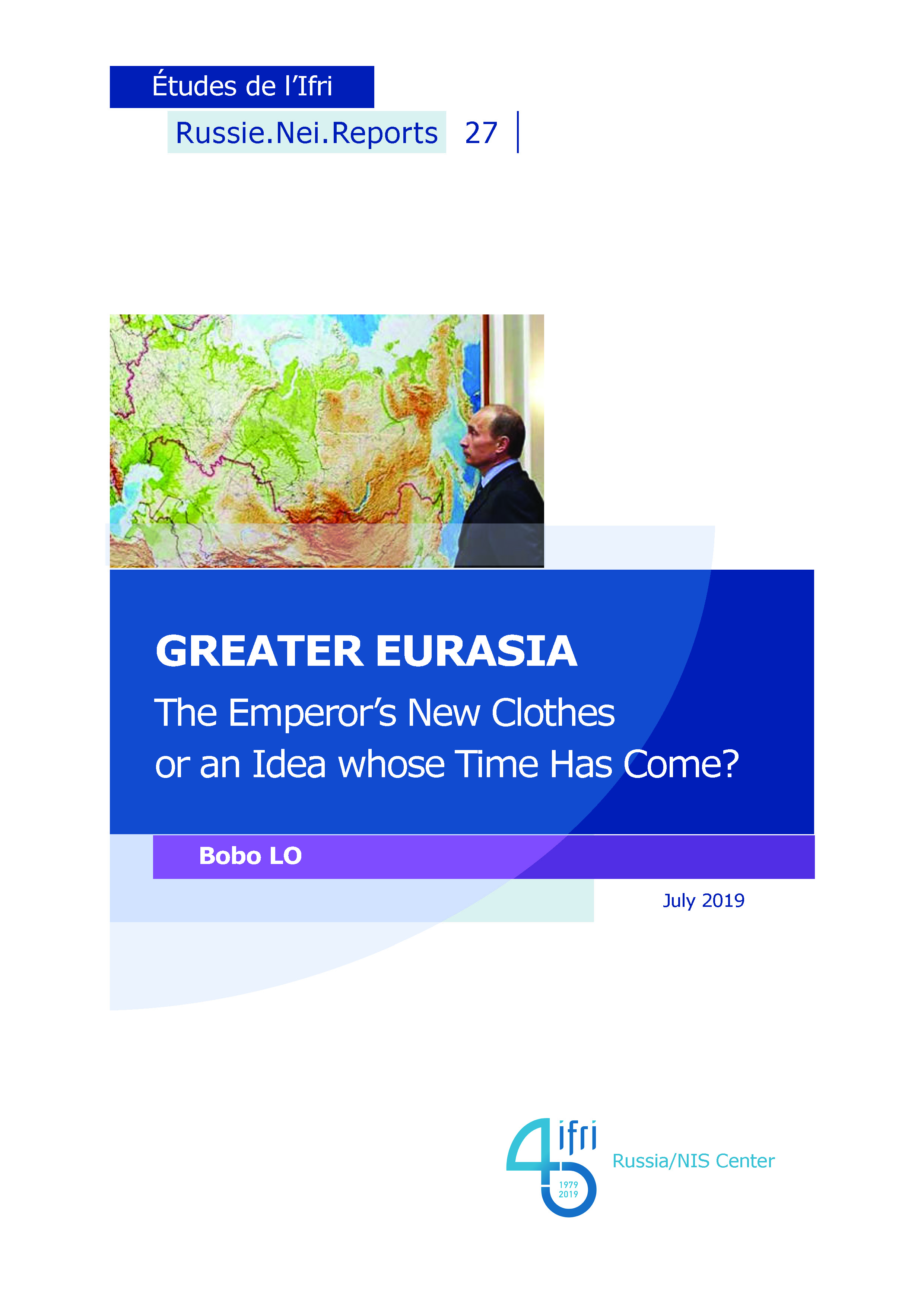Greater Eurasia: The Emperor’s New Clothes or an Idea whose Time Has Come?

The Greater Eurasia project has emerged as the poster-child of Vladimir Putin’s foreign policy, symbolic of a resurgent and self-confident Russia.
It is at once a geopolitical enterprise, political slogan, economic aspiration, and ideological construct. It is an attempt to impart dynamism to the Eurasian Economic Union. Most important of all, it seeks to establish a new, post-American order in which Russia plays a pivotal role. Greater Eurasia is a work in progress. Many of its goals are speculative and the challenges are formidable. To have any chance of success, Moscow must be able to manage the competing interests of other state-actors, in particular China; transcend the limitations of Russian power; and demonstrate sustained political will. There is little evidence so far that it is up to the task. Today, Greater Eurasia is more anti-project than project, an expression of Russian animus toward the liberal international order rather than a serious blueprint for global governance. Yet nothing is fixed. There is still scope for a positive vision to emerge out of the current confusion. Equally, though, the Greater Eurasia project could suffer the fate of previous major Kremlin undertakings, drifting along with little purpose and diminishing conviction.
Bobo Lo is an Associate Research Fellow with the Russia/NIS Center at the French Institute of International Relations (Ifri).

Available in:
Regions and themes
ISBN / ISSN
Share
Download the full analysis
This page contains only a summary of our work. If you would like to have access to all the information from our research on the subject, you can download the full version in PDF format.
Greater Eurasia: The Emperor’s New Clothes or an Idea whose Time Has Come?
Related centers and programs
Discover our other research centers and programsFind out more
Discover all our analysesRussia's Asia Strategy: Bolstering the Eagle's Eastern Wing
Among Russia’s strategic priorities, Asia traditionally played a secondary role compared to the West. In the mid-1990s, then Foreign Minister Yevgeny Primakov initiated a rapprochement with China and India. Then, in 2014, deteriorating relations between Russia and the West prompted Moscow to begin its “great pivot to the East”.
Kazakhstan After the Double Shock of 2022: Political, Economic and Military Consequences
The year 2022 represented a dual shock for Kazakhstan. In January, the country faced its most severe political crisis since independence, followed in February by Russia’s full-scale invasion of Ukraine, which cast uncertainty over the borders of post-Soviet states. These consecutive crises profoundly shaped Kazakhstan’s domestic and foreign policy.

How the Russian Army Changed its Concept of War, 1993-2022
The traditional and high-intensity war that has occurred in Ukraine since Russia decided to invade raises a key issue: did post-soviet Russian strategic thought really prepare Russia for waging this war?
Russia's Nuclear Deterrence Put to the Test by the War in Ukraine
From the outset of its “special military operation” (SVO) against Ukraine on February 24, 2022, Russia, which possesses one of the world’s largest nuclear arsenals, has adopted aggressive deterrence measures and a resolutely menacing rhetorical stance.










